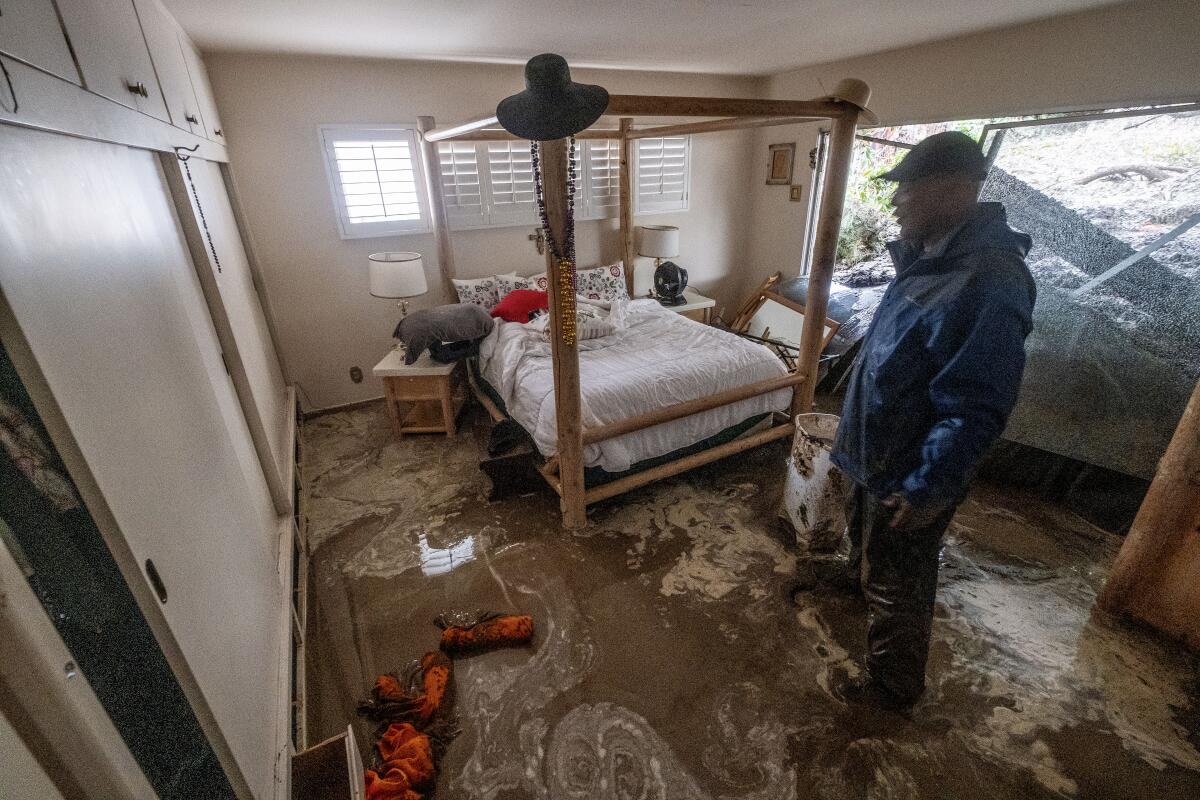Water Mitigation Company with Proven Track Record of Success in Restoration
Water Mitigation Company with Proven Track Record of Success in Restoration
Blog Article
The Refine of Water Damage Cleaning: Ensuring Your Home Is Recovered Successfully
Water damage can be a challenging challenge for home owners, requiring a meticulous and organized cleanup procedure to restore safety and security and performance. Initially, a detailed assessment is essential to determine the level of the damage and determine the proper removal procedures. Following this, efficient water removal techniques play an essential role in alleviating further damage. The subtleties of drying out, sanitizing, and eventual repair are just as important and commonly forgotten. Understanding these stages can make a considerable difference in the result of your home's reconstruction, prompting a closer look at what each action requires.
Analyzing the Damages
Upon uncovering water damages, the primary step is to extensively assess the extent of the influence. This first analysis is critical, as it aids figure out the needed steps for effective cleanup and restoration. Begin by inspecting the influenced locations, including walls, ceilings, floorings, and individual valuables, to identify the source of the water breach, whether from flooding, leakages, or condensation.
Documenting the damages is necessary for both insurance coverage claims and planning reconstruction efforts - damage restoration services. Use pictures and composed notes to capture the extent of the damages, noting any kind of afflicted structural components and materials. Pay special focus to areas that might not be immediately noticeable, such as behind walls and under carpets, as concealed wetness can lead to further complications, consisting of mold growth
Additionally, examine the timeline of the water direct exposure. Ultimately, a detailed assessment lays the groundwork for a successful water damages cleaning process, making sure that all influenced areas are dealt with successfully and extensively.
Water Extraction Methods

Experts normally use completely submersible pumps for larger volumes of water, which can quickly reduce flooding in basements or other impacted areas. For smaller quantities, wet/dry vacuums are usually used to extract residual wetness from carpetings and hard surfaces. In addition, utilizing mobile extractors permits targeted elimination in constrained rooms or locations with delicate materials.
In instances of contaminated water, such as sewage or floodwater, progressed removal methods may involve making use of biohazard equipment to ensure safety and security and conformity with wellness guidelines. High-powered extraction tools are crucial in minimizing water retention in architectural products, which can cause mold growth and architectural damage otherwise dealt with promptly.
Inevitably, the performance of water extraction techniques plays a crucial function in the overall success of the water damages clean-up process, preparing for succeeding remediation initiatives.
Drying and Dehumidification
When standing water has been properly drawn out, the next essential phase in the water damages clean-up process is drying out and dehumidification. This action is vital to stop further damages and mold development, which can occur within 24 to 2 days in damp settings.
To achieve reliable drying, customized equipment such as industrial-grade air moving companies and dehumidifiers is employed. Air moving companies circulate air throughout wet surface areas, improving dissipation rates, while dehumidifiers lower humidity degrees airborne, promoting a helpful environment for drying out. The mix of these tools makes certain that moisture is extracted from walls, floors, and home furnishings, allowing them to dry extensively.
It is important to keep an eye on the drying procedure closely. Experts usually use wetness meters to analyze the moisture content in different products, making certain that all affected areas reach appropriate dry skin degrees. This thorough approach helps to stop concealed dampness pockets that can lead to structural damage or unhealthy mold growth.

Cleaning and Disinfecting
After the drying out and dehumidification stage is complete, the next vital action in water damages cleaning is cleansing and disinfecting the influenced locations. This process is important to stop the development of mold, bacteria, and other virus that grow in wet atmospheres.
The cleaning phase typically entails getting rid of any type of debris, dirt, and impurities from surface areas utilizing specialized cleaning representatives. For tough surfaces, a mix of soap and water or business cleaning items is usually utilized. Soft materials, such as furniture and rugs, may call for a lot more comprehensive cleaning approaches, including steam cleansing or deep extraction strategies, to make sure extensive sanitation.

Disinfecting complies with cleansing, utilizing EPA-approved anti-bacterials to eliminate dangerous microorganisms. This action is vital, particularly water damage on baseboards in areas that might have come into call with floodwaters or sewer, as these sources can posture major wellness risks.
Furthermore, it is necessary to attend to any kind of remaining smells, which might require using smell neutralizers or advanced methods like ozone therapy. Proper cleaning and disinfecting not only restore the security and hygiene of your home however additionally lay the foundation for effective repair and repairs in succeeding phases of the water damage cleanup procedure.
Reconstruction and Repairs

Once the assessment is full, repair efforts can start. Furthermore, flooring might need similar interest, depending on the level of water direct exposure.
It is vital to engage seasoned repair professionals throughout this process, as they have the know-how to deal with intricate repair services effectively. They can help alleviate possible future issues, such as mold and mildew development or structural instability, hence ensuring a risk-free and habitable living atmosphere. Inevitably, effective remediation and fixings bring back the home's integrity and improve its total value.
Conclusion
Finally, the procedure of water damage clean-up is essential for restoring a find out this here home to its pre-damage condition. Each stage, from analyzing the damage to executing efficient water removal strategies, followed by extensive drying out, disinfecting, and necessary check this site out repair work, plays a necessary duty in ensuring safety and compliance with building requirements. Efficient implementation of these actions not just alleviates prompt damages yet additionally boosts the lasting integrity and value of the home.
Water damage can be a complicated difficulty for property owners, necessitating a meticulous and organized cleanup procedure to bring back safety and functionality. Inevitably, a detailed assessment lays the foundation for an effective water damage cleaning procedure, making certain that all impacted areas are resolved successfully and completely.
Reliable water removal techniques are crucial in alleviating damage and protecting against additional complications complying with a water intrusion occasion.In conclusion, the procedure of water damage clean-up is crucial for recovering a home to its pre-damage condition. Each stage, from assessing the damages to implementing efficient water extraction methods, adhered to by extensive drying out, sterilizing, and essential repair work, plays an essential function in making certain safety and conformity with structure standards.
Report this page